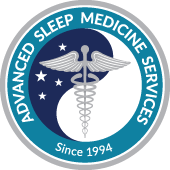If you’re reading this blog, odds are, you’re looking for more information about sleep and sleep disorders. That’s good news for you, because the goal of this blog post is to give you an answer to ALL of your questions relating to sleep apnea, sleep studies, and the treatment that you can get afterwards.
(Seriously, we’ve answered so many questions that they won’t all fit in this blog post. Read on!)
Sleep Apnea and Sleep Study FAQs
In the past few weeks, we’ve been working on adding a Frequently Asked Questions section to our website to act as a resource for people at all stages of diagnosing and treating their sleep apnea.
Check out our lists of Frequently Asked Questions
We’ve broken down our FAQ lists into six main topics:
- Sleep Apnea: basics on the sleep disorder, how to recognize it, and some misconceptions
- In-Center Sleep Studies: including how to prepare, what to bring, and when to expect results
- Home Sleep Testing (HST): like what is a home sleep test, how you will obtain the device, and how to use the machine
- PAP Treatment: such as how frequently to use the device and common troubleshooting
- PAP Resupply: including why and how often you should replace your supplies
- Insurance: such as insurance basics and what is covered by your insurance
Click through the links above to learn more about each topic and how Advanced Sleep Medicinee Services handles each part of your sleep apnea treatment.
Our Top 6 FAQs
Because there’s absolutely no room to fit all our FAQs in this post, we’ve compiled a list of our top 6 (one from each list) and a shortened response to give you an idea of what to expect (click the title for the full answer).
1. Will my insurance cover my sleep study or PAP device?
Most insurances (HMO, PPO and Medicare) cover sleep studies and PAP therapy for the treatment of sleep disorders. Plans may vary in their coverage and many now require authorization for these services.
We understand that patients and their physicians are concerned about rising out-of-pocket expenses for health care; unfortunately, this often affects decisions about how healthcare is administered. By contracting as an in-network provider with more payer organizations, more patients can afford to receive the proper diagnosis and treatment for their sleep disorders.
2. How long does it take to get sleep study results?
You will typically receive your results within two weeks (10 business days). Each sleep study is scored by a technician and then reviewed by a sleep specialist. See our video for more information on what happens after your sleep study.
3. How do I know how to use the Home Sleep Testing device?
The HST device is fairly simple to set up. This manufacturer video explains how to set up and operate the device. The morning after you schedule your appointment, you will receive an email with detailed instructions about how to self-administer the home sleep test. Plus, if you pick up the device in person, you will have a live technician walk you through how to use it.
4. Do I have to use my PAP device every night?
You should use the PAP machine as ordered by your physician. However, it is generally recommended that you use your PAP machine every night. If at first you experience some difficulty staying asleep with the PAP device for a long period, it is recommended that you use it every night for as long as you can. Then try adding 30 minutes – 1 hour to your usage time nightly, until you have fully adapted to the machine.
5. How often should I replace my PAP equipment?
Certain supplies need be replaced anywhere from every two weeks to every six months. Many insurance plans follow these Medicare guidelines:
| Every Month: | Nasal Mask Cushion/ Pillows (twice per month) |
| Full Face Mask Cushion (once per month) | |
| Device Filter (twice per month) | |
| Every 3 Months: | Mask and headgear, tubing |
| Every 6 Months: | Chinstrap, humidifier, water chamber |
6. I think I might have sleep apnea. What should I do?
If you suspect that you may have sleep apnea, it is very important to get diagnosed so that you can begin treatment and reclaim your health. A sleep study can determine whether you are suffering from a sleep disorder. Talk to your doctor about having a sleep study, or request a study.
Want more?
FAQs about home sleep apnea testing (HST)
FAQs about In-Center Sleep Studies
FAQs about replacement supplies for CPAP
FAQs about insurance coverage for sleep studies, CPAP and supplies


